-
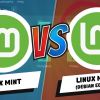 +19 +1
+19 +1Which Linux Mint is Better? Comparing Debian Edition & Standard
Linux Mint Debian Edition (LMDE) is a very interesting distribution to say the least. It looks and acts nearly exactly the same as the standard version of Linux Mint, but LMDE is built on top of Debian instead of Ubuntu. In this video, Jay compares LMDE to the flagship edition of Linux Mint and also gives it an updated review.
-
 +25 +1
+25 +1Canonical Unveils Landscape 23.03: Streamlining Ubuntu Linux Management
Canonical's Landscape sysadmin tool for Ubuntu and Debian Linux keeps getting better and better.
-
 +20 +1
+20 +1Debian 'Bullseye' enters final phase before release as team debates whether it will be last to work on i386 architecture
Security, lack of suitable hardware for testing makes full 32-bit support hard
-
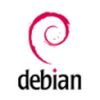 +24 +1
+24 +1Debian 10 'Buster' Linux arrives
Over two years in the making, the latest version of Debian Linux arrives.
-
 +11 +1
+11 +1Google moves to Debian for in-house Linux desktop
Google is officially moving from Ubuntu to Debian for its in-house Linux desktop.
-
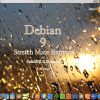 +10 +1
+10 +1All about Debian 9 'Stretch,' the Linux distro that just works
Debian is built for those who crave a system that will "just work" instead of being on the bleeding edge. We take a close look at the latest Debian 9 "Stretch" release.
-
 +8 +1
+8 +1Debian turns 23!
Today is Debian's 23rd anniversary. If you are close to any of the cities celebrating Debian Day 2016, you're very welcome to join the party!
-
 +8 +1
+8 +1Debian Stretch Successor To Be Codenamed Bullseye
Taking place this week in Cape Town, South Africa is DebConf 16. One of the interesting bits of information out of that event is the codename for Stretch's successor. Debian "Stretch" is the codename for Debian 9 and should be officially released in 2017. Now from DebConf 16 the codename to Stretch's successor has been revealed: Bullseye.
-
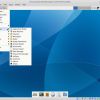 +5 +1
+5 +1Forked Debian Beta Is Rough Around the Edges
The Devuan GNU/Linux community's much-awaited Devuan Linux Jessie 1.0 beta release is available. It took two years for disgruntled Debian community members to make good on their promise of a systemd-free Debian distro. They rejected a Linux-wide trend to replace older init processes such as Upstart and System V with systemd. The process of forking Debian into Devuan took much longer than expected.
-
 +19 +1
+19 +1Devuan, a fork of Debian without systemd, has released its first beta
Devuan GNU+Linux is a fork of Debian without systemd. Its Beta release marks an important milestone towards the sustainability and the continuation of Devuan as a universal base distribution. Devuan Jessie provides continuity as a safe upgrade path from Wheezy and a flawless switch from Jessie that ensures the right to Init Freedom and avoids entanglement. Since the Exodus declaration in 2014, infrastructure has been put in place to support Devuan’s mission to offer users control o
-
 +2 +1
+2 +1Debian: Security support for Wheezy handed over to the LTS team
As of 25 April, one year after the release of Debian 8, alias "Jessie", and nearly three years after the release of Debian 7, alias "Wheezy", regular security support for Wheezy comes to an end. The Debian Long Term Support (LTS) Team will take over security support.
-
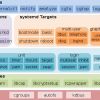 +1 +1
+1 +1Count me as a systemd convert
Back in 2014, I wrote about some negative first impressions of systemd. I also had a plea to debian-project to end all the flaming, pointing out that “jessie will still boot”, noting that my preference was for sysvinit but things are what they are and it wasn’t that big of a deal.
-
 +33 +1
+33 +1Debian mourns the passing of its founder Ian Murdock
With a heavy heart Debian mourns the passing of Ian Murdock, stalwart proponent of Free Open Source Software, Father, Son, and the 'ian' in Debian. Ian started the Debian project in August of 1993, releasing the first versions of Debian later that same year. Debian would go on to become the world's Universal Operating System, running on everything from embedded devices to the space station.
-
 +19 +1
+19 +1Debian to stop producing CD ISO sets for future releases citing lack of use
We'll stop building full CD sets of all of Debian (up to 90 per architecture) for new releases, and testing. And we'll also kill the differing CD1 options for different desktops. We'll continue building DVD and BD images. DVD#1 will continue to be configured to fir on a 4GB USB stick. We'll *keep* building netinst images as a small handy image type that many people use, and we'll keep building CD sets and CD1 options for older releases (Wheezy and Jessie) - we're not going to change tack on tho
-
 +24 +1
+24 +1How Debian Is Trying to Shut Down the CIA and Make Software Trustworthy Again
In response to the Snowden revelation that the CIA compromised Apple developers' build process, thus enabling the government to insert backdoors at compile time without developers realizing, Debian, the world's largest free software project, has embarked on a campaign to to prevent just such attacks. Debian's solution? Reproducible builds.
-
 +1 +1
+1 +1Debian: GCC-5 transition is coming to Testing tonight
Thanks to hard work of Adam, Julien, Jonathan, Matthias, Scott, Simon and many others, the GCC-5/libstdc++ transition has progressed to a state, where we are ready to migrate the bulk of it to testing. It should be a mostly smooth ride.
-
 +1 +1
+1 +1Debian 8.2 released
The Debian project is pleased to announce the second update of its stable distribution Debian 8 (codename "jessie"). This update mainly adds corrections for security problems to the stable release, along with a few adjustments for serious problems. Security advisories were published separately and are referenced where applicable.
-
 +2 +1
+2 +1Is There Such a Thing as Too Many GNU/Linux Distributions?
Softpedia lists about 2,000 Linux kernel-based OSes. I think it's time to clarify the matter of "too many Linux distributions" once and for all. For a Linux veteran like myself, it is getting annoying to see all sorts of comments on the Internet from people complaining that there are way too many distributions of Linux.
-
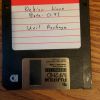 +1 +1
+1 +1Debian Founder: How I came to find Linux
I saw my first Sun workstation in the winter of 1992, when I was an undergraduate at Purdue University. At the time, I was a student in the Krannert School of Management, and a childhood love of computers had just been reawakened by a mandatory computer programming course I had taken during the fall semester (we were given the choice between COBOL and FORTRAN—which even in 1992 seemed highly dated—and I had picked COBOL because it seemed the more “business” of the two).
-
 +2 +1
+2 +1Canonical's deliberately obfuscated IP policy
I bumped into Mark Shuttleworth today at Linuxcon and we had a brief conversation about Canonical's IP policy. The short summary: Canonical assert that the act of compilation creates copyright over the binaries, and you may not redistribute those binaries unless (a) the license prevents Canonical from restricting redistribution (eg, the GPL), or (b) you follow the terms of their IP policy. This means that, no matter what Dustin's blogpost says, Canonical's position is that you must ask for...
Submit a link
Start a discussion




















